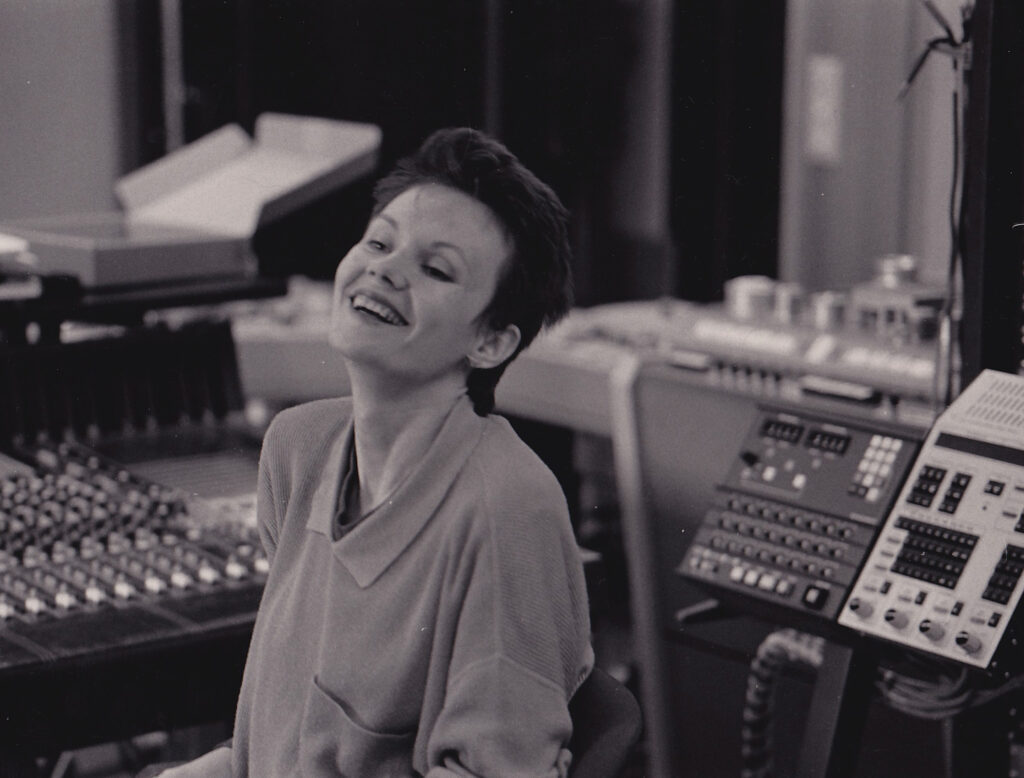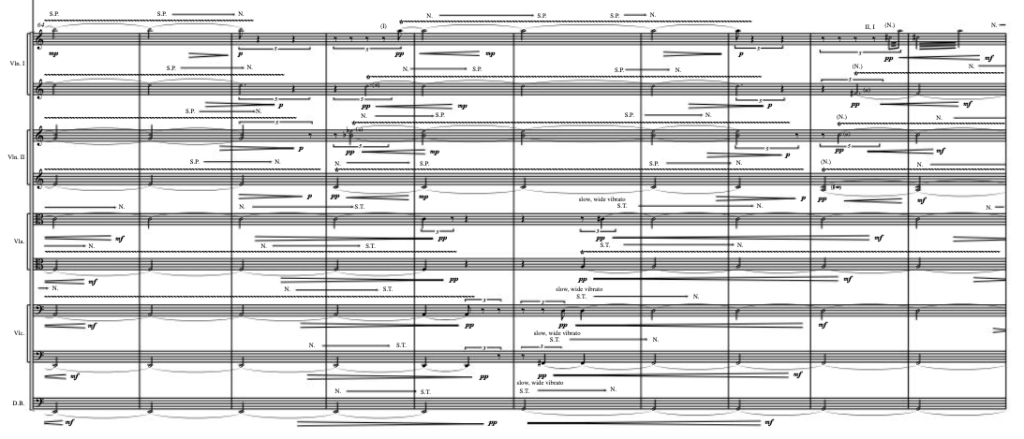I’m going to take a break before finishing the assigned series on solo woodwinds from the previous few entries to focus the next few posts on some works from composers I’ve been into recently, outside of the course assignments and just in my general listening. Furthermore, the recent list of assigned compositions for woodwind were completely lacking in any female composers (something which became very evident when I compiled all the portraits I’ve been posting with the entries!). I will keep this in mind by varying more the styles, genres, geographies, periods, instrumentation, etc. to hopefully keep this interesting and fresh for anyone who might read it.
Having said, this log entry features Kaija Saariaho (b. 1952), a contemporary composer from Finland associated with the spectralist movement. Saariaho has been an active explorer in combining electronic and acoustic sound sources for ensembles of varying sizes and instrumentation1.

The piece for this entry is a short orchestral piece from 2005 titled Asteroid 4179, Toutatis composed in 2005 by Saariaho and inspired by the potentially hazardous asteroid of the same name. The work was comissioned by the Berliner Philharmoniker for a project surrounding a release of Gustav Holst’s The Planets. The composition lasts between 3.5 to 4 minutes and is composed for a large orchestral ensemble. Saariaho was inspired by the unusual tumbling rotation of the asteroid which would mean that the path of any objects viewed from the asteroid would not repeat.
Right off the bat, I will admit that while this piece makes for an intense and engaging listening experience, this is a challenging piece to write about. The piece begins with very soft and sparse instrumentation, with the celesta and woodwinds providing the first hints of movement above a soft pad of strings and percussion. The melodic movement starts to tumble and tangle within itself as the woodwinds, harps, and celesta begin to come in with unrelated clashing melodies. Beneath them the brass enters into the first of a few different climaxes of the piece.
The next section of the piece is dominated by ostinato (obstinate, repeating) patterns in the strings and brass. This might be a cheeky nod to The Planets, it’s hard to tell. The next section has some really interesting notation for the way in which the strings are instructed to enter and exit in a staggered fashion. A really interesting effect is created by these staggered entries set only a beat appart at times, even within sections I have become really interested in meticulous notation choices by composers such as what is shown below:

There are some very intense and unpredictable peaks of energy in the piece. These peaks are brought on by a sudden crescendo from the brass and then ease off to a dynamic only slightly higher than in the previous section. In that sense the piece is continually growing in volume but the illusion of growth is tamed by a sudden pull in the dynamics to give ample room for further growth. Having had the score to read with the piece (which the composer has for free in her website2) made for a really engaging listening experience as many of these nuances can be apreciated with more detail.
On a side note, I find it fantastic and a bit funny that this piece was commissioned from Saariaho to go along with another release of The Planets. In contrast to Holst’s highly personal and jovial view on astrology, listening to Asteroid 4179 brings up a desolate version of outer space, far more consonant with our often-hard-to-swallow lonely existence. I’m not sure how well the different styles in this record fit, I’m also curious to hear how someone who is keen to buy another recording of The Planets would feel about these additions, but it’s interesting to see how the way we musicalize the cosmos has evolved over the years.
References: 1. https://saariaho.org/biography/ 2. https://saariaho.org/works/asteroid-4179-toutatis/ Recording: Saariaho, K., Rattle, S., Berliner Philharmoniker. 2006. Holst: The Planets. Berlin: EMI. [online] Sheet music: Saariaho, K. 2005. Asteroid 4179 - Toutatis. New York: Chester Music. [online]
